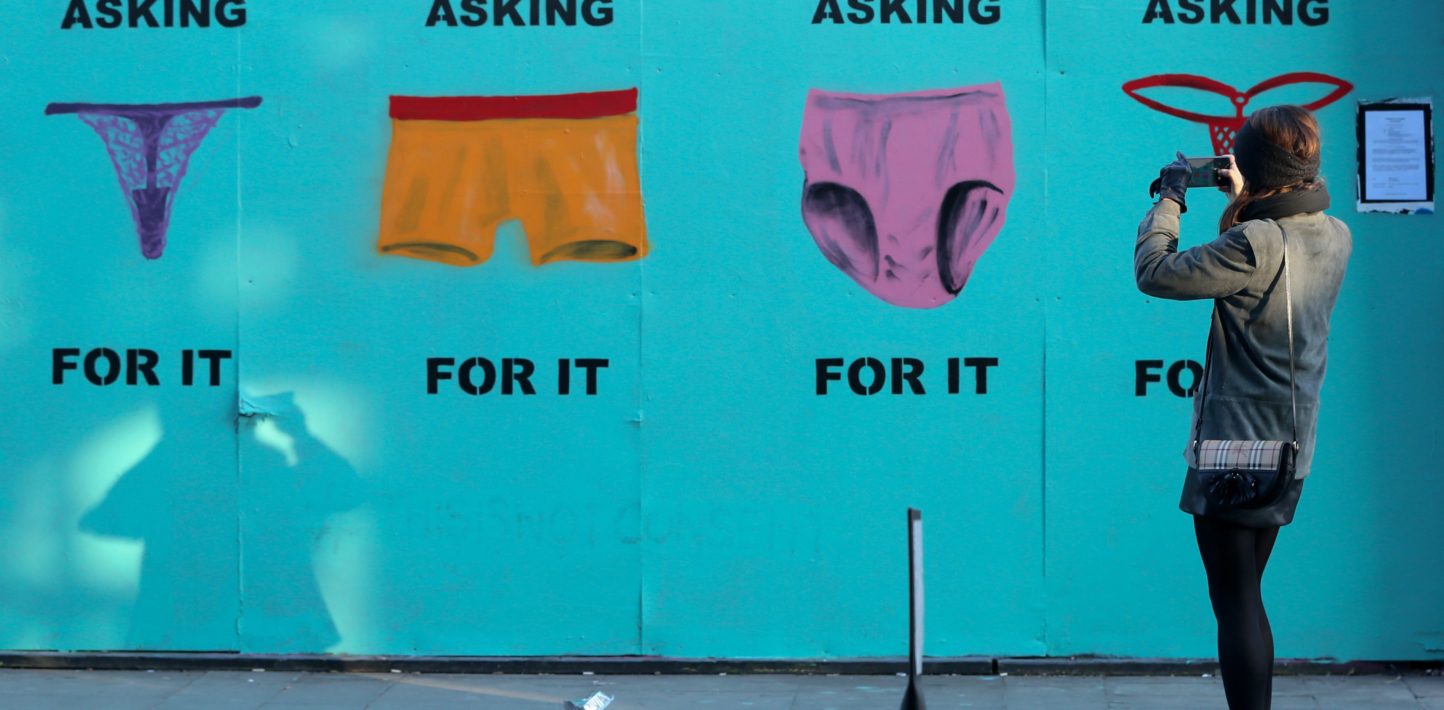Sex without consent is rape. It’s as simple as that.
But myths and gender stereotypes related to rape and consent are widespread in our societies, including in court rooms.
In fact, in Europe alone, only 8 countries have laws that define rape as sex without consent. But courageous women across the region are fighting to change this.
Knowledge is power, also when it comes to fighting rape. So, here are five true statements about rape.
1. The majority of rapes are committed by people known to the victim.
A common assumption is that rapes are mostly committed by strangers. But in fact, the majority of rapes are committed by someone known to the victim. Perpetrators can be a friend, a colleague, a family member, partner or ex-partner. The ‘stranger myth’ sends the wrong message that a sexual assault committed by someone known to the victim is not rape. An alarming 11 percent of respondents to a 2016 survey on attitudes on gender-based violence in the EU expressed a view that to force sex with an intimate partner should not be illegal.
2. Often, victims of rape do not physically resist.
There should be no assumption, in law or in practice, that a person gives consent because they have not physically resisted. Just because a woman doesn’t have visible injuries, didn’t’ say NO or did not show resistance, doesn’t mean she was not raped. Despite the expectation that a “model” rape victim will fight the attacker back, freezing when confronted with a sexual attack has been recognized as a common physiological and psychological response, leaving the victim unable to oppose the assault, often to the point of immobility. For example, a 2017 Swedish clinical study found that 70 percent of the 298 women rape survivors assessed, experienced “involuntary paralysis” during the assault.
3. False rape reports are rare.
There is no evidence to sustain that false reports are common. Rapes are hugely under-reported due to lack of trust in the justice system or because of fear of not being believed. The reality is that it takes a lot of courage and determination to report a rape. And when they do so, women are often blamed and humiliated, being repeatedly asked what they did to provoke it or why they put themselves in a particular situation. Survivors deserve to be believed, their reports should be thoroughly investigated and they should get the support they are entitled to.
4. What women wear is not to blame.
The assumption that what a woman wears can provoke a man to rape her stems from rooted stereotypes about male and female sexuality. However, in reality, women are being raped or assaulted while wearing any type of clothing. No type of clothing is an invitation for sex or implies consent. What a woman was wearing when she was raped is simply not relevant. Rape is never the victim’s fault. An understanding that sex without consent is rape is the first step to change social attitudes that further harm rape victims.
5. Alcohol and drugs can never be an excuse to justify rape.
Similarly, having sex with a person, who is incapable of consenting because of alcohol or drugs, is rape.


